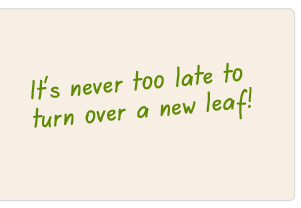Time Management
 It’s September!
It’s September!
I hope you had some time to relax during the summer. Cooler weather has arrived, and the leaves are starting to change colour.
For many people, fall means getting back into a busy routine. Time management often becomes a juggling exercise!
MANAGING YOUR TIME
What’s Most Important?
One of the critical steps in managing your time is establishing priorities. Set aside some time to think about what’s most important in your life.
Everyone has the same amount of time each day:
- 24 hours
- 1,440 minutes or
- 86,400 seconds
Time is one of your most valuable resources. You can’t store it or get it back once it’s gone. So why is it that some people are able to accomplish so much? The answer is simple. They have a plan.
Plan
In order to come up with a plan, you may need to start with your desired outcome and work backwards. If you take the time to create a plan first, it will pay off in the long run.
Prioritize
Set aside some time first thing in the morning to prioritize what needs to be done. It’s even better if you can do this at the end of the day. You’ll be more focused when you can jump right into the first task on your list.
Schedule
Take control. Set limits. If possible, schedule your most important or difficult tasks at the time of day when your energy levels are at their highest. Be realistic about how much will fit into your schedule. Just because there are 24 hours in a day, doesn’t mean that you have to schedule 18 of those hours. Schedule blocks of time in your planner or calendar for focused work time.
Remember–it’s OK to say NO. If you find yourself always saying YES, ask if you can get back to the person asking for your time. Once you’re away from that moment, you’ll be able to review your schedule and determine if you really do have the time to say yes.
Perfectionism
“Perfectionism is not attempting to be perfect when performing a task; it is the act of spending more time on a task, activity or decision than theresults justify.” Harold Taylor, Canadian Time Management Expert
Procrastination
Emmett’s Law states that “The dread of doing a task uses up more time and energy than doing the task itself.”
Brian Tracy uses ‘“eat that frog” as a metaphor for tackling the most challenging task of your day.
Multitasking
How many of you think you’re more productive when you multitask? Numerous studies have proven this to be untrue. It’s next to impossible to completely eliminate multitasking from our busy lives, but being aware that multitasking reduces your productivity is a step in the right direction.
Lateness/Missed Events
Are you on time? Not arriving on time shows that you are not respectful of other person’s time. When scheduling your day, remember to allow sufficient time to get to your destination. Set a timer or the alarm on your phone to remind you.
Do you miss events because you didn’t put them into your calendar? Make an effort to enter them into your calendar as soon as you make the commitment.
To-Do Lists/Planners
“To Do lists are intentions, but scheduled blocks of time in your planner are commitments.” Harold Taylor, Canadian time management expert
Delegate
Can you delegate an item on your to-do list? Ask yourself if YOU must complete the task. Remember—you are only one person, and there are only 24 hours in each day.
“You have the power and responsibility to decide what you do with the time you have, so choose wisely.” Matthew Jones, Contributor, Inc.com
So get started and turn over another leaf!
Until next month,
![]()



Connect with us Online